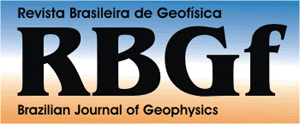Geophysical well log measurements are key information for the development of oil and gas reservoirs. However, the absence of a certain fundamental well log, for instance, the compressional-wave (P-wave) sonic log, prevents the application of specific risk-assessment techniques. Therefore, the application of methodologies for estimating log records absent in wells is of great importance in the reservoir characterization and development procedures. In this paper, we use the regression analysis methodology for estimating P-wave sonic log measurements. Effective porosity, shaliness and electrical resistivity are established, individually or in a combined way, as the parameters for describing P-wave velocity variation in Namorado oil field, Campos basin. Two general equations provide 28 empirical models with potential use in estimating P-wave velocity variation from well log measurements. Application of least-squares technique leads to the determination of lithology-related regression coefficients at the surroundings of two wells chosen for verifying the empirical models. The results show the equivalence of both general equations used for obtaining empirical models for P-wave velocity estimation. As confirmation of papers published previously, empirical models assuming effective porosity and/or shaliness as dependence parameters play a fundamental role in the prediction of velocity variation. Nevertheless, the velocity calibration process exhibits high stability for empirical models in which electrical resistivity is used as an additional dependence parameter.
geophysical well logs; regression analysis; P-wave velocity estimation; Namorado reservoir





















